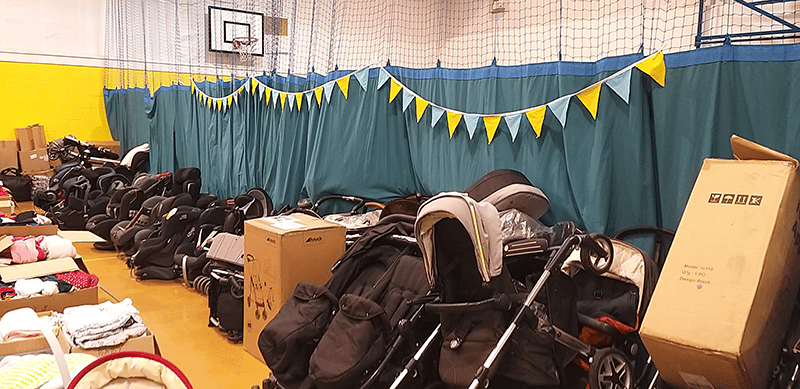Nearly 400 Ukrainians have arrived or are heading to the borough after fleeing Putin’s invasion of their country.
Council chief executive William Benson told a national media briefing last Wednesday (May 11) at the TN2 Community Centre that 379 visas had so far been issued to Ukrainians coming or that had arrived in Tunbridge Wells.
The event was organised to showcase Tunbridge Wells and West Kent’s response to the crisis, and for the media to hear some of the stories from people that have fled the warzone.
Second to Tunbridge Wells in Kent for the number of visas issued to refugees was Sevenoaks with 352 visas, followed by 331 in Maidstone.
The visas have been given out under both the HfU scheme and the Ukraine Family Scheme (UFS), and Tunbridge Wells is also housing more Ukranians with its residents than any other of the county’s 12 districts.
Tunbridge Wells accounted for 289 HfU visas, followed by 266 in Sevenoaks District Council and 242in Maidstone Borough Council, meaning more people were opening their doors in the borough to help refugees than anywhere else in Kent.
Across the UK nearly 133,000 visa applications have been received under both schemes and more than 100,000 visas have been issued so far.
Accompanied by leader of Kent County Council (KCC) and Sevenoaks councillor Roger Gough as well as local volunteers from the Ukraine Relief Group, Mr Benson, who is himself hosting refugees, said overall in Kent, 2,773 visa applicants had been matched with 1,104 households.
However, both local authority heads admitted both councils faced difficulties in the quickly-developing crisis, with arrangements and government guidance developing over time.
One of the major headaches was the existence of the two schemes for Ukrainians to enter the UK: HfU and the UFS.
Following reports that UK-resident Ukrainians had invited family members without the means to support or house them, Mr Benson said: “People were using any scheme to get them out. But the peculiarity of the two schemes being parallel, not together, is a major concern.”
Cllr Gough added: “The parallel Family Scheme was almost unregulated. We [local authorities] are blind to it. Local authorities don’t get support. The Family scheme isn’t funded.”








